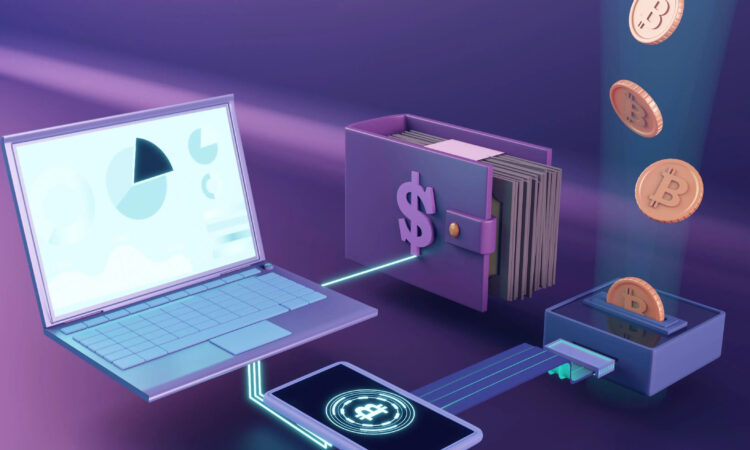
Vikram Subburaj, Co-Founder, Giottus | Image:Republic
Vikram Subburaj interview: With BlackRcok’s Bitcoin ETF approval, the crypto industry is set for higher capital inflows with major cryptocurrencies leading the pack towards the next bull run. However, as more capital enters the crypto market, it creates a dire need for a global regulatory framework and the right infrastructure to address the increasing demand.
While the Government of India is pushing towards building a consensus on crypto regulations, local crypto businesses have a long list of expectations and a strong sense of belief that the market will be allowed to become more inclusive. In an exclusive conversation with Republic Business, Vikram Subburaj, Co-founder of Gittos, shared insights into the expectations surrounding the budget and the current dynamics in the crypto market.
On budget wishlist
As the budget season approaches, Subburaj expressed cautious optimism regarding the government’s efforts. While not anticipating major crypto-related announcements in the interim budget, he underlined the importance of the government continuing its positive initiatives.
“I’m not expecting much on crypto to be discussed in the budget. TDS has been continuously represented, and data has been shared on people moving funds to foreign entities. However, I’m not confident that this budget will include a discussion on crypto, especially considering the upcoming elections. The wishlist is high, but the hope is low this time,” said Subburaj.
Subburaj highlighted the hope for relaxation in TDS (Tax Deducted at Source) and the offset of losses in income tax.

On TDS impact
Subburaj delved into the impact of TDS on crypto trading, identifying it as a key concern. He pointed out that the current TDS structure has disrupted market liquidity by affecting market makers, leading to a decline in trading activity.
“The 1 per cent TDS has taken market makers out of the equation, impacting liquidity. The spreads between buy and sell on exchanges have increased to more than 1.5 to 2 percentage points. This has had a significant impact on market efficiency,” said Subburaj.
The excessive taxation, coupled with the high frequency of trades some investors are compelled to execute, has contributed to a noticeable drop in liquidity. Subburaj stressed the need for a balanced approach to taxation to ensure a level playing field for both Indian and international players.
“The 1 per cent TDS has created an uneven playing field for Indian versus international players. It has led to an advantage for international players, as they don’t have TDS. The recent ban on international exchanges by FIU is bringing some traders back to Indian exchanges.”
On SEC’s Bitcoin ETF approval
Addressing the recent approval of the SEC’s Bitcoin ETF, Subburaj acknowledged the positive sentiment in the ecosystem. He said, “It almost feels like one milestone, a big milestone has crossed right now. Bitcoin has ideally entered from being in wallets to brokerage accounts, a psychologically big movement. It will not feel like a whole new world for investors, but rather a familiar brokerage account.”
“Almost $1.5 billion of GBTC, which got converted into ETF, got liquidated. This has put pressure on the market, and from $46,000 to $47,000, it has now dropped to $41,000. More people who bought GBTC may be selling out, adding further pressure on Bitcoin prices,” added Subburaj.
Despite the initial dip in Bitcoin prices following the ETF approval, Subburaj anticipates a correction paving the way for a stronger bull rally.
On regulatory landscape
Discussing regulations, Subburaj emphasized the importance of entities adhering to government laws. He underscored the government’s focus on consumer protection and the ongoing dialogue between industry stakeholders and regulators. Subburaj advocated for a reduction in taxation, citing it as crucial for maintaining market liquidity and fostering increased participation in the digital market.
“When we talk about regulations, there are components like checks and balances on entities, consumer protection, AML, and tax implications. Taxation is a relatively new story, around one and a half years old. Industry representatives have been pushing for at least a relaxation in TDS to prevent liquidity from going out. A 0.01 per cent TDS could lead to increased market participation,” said Subburaj.
Subburaj highlighted the shift in discussions from contemplating bans to actively working on regulations. He noted that the focus has moved from concerns like money laundering to regulatory frameworks, indicating a positive trajectory for the industry.
“The biggest change in the regulatory scenario is that we are no longer discussing the possibility of a ban. The shift in thought post-G20 has been monumental. We are now discussing how crypto will be regulated, which is a positive development,” said Subburaj.
The government’s emphasis on consumer protection signifies a proactive approach to fostering a secure and regulated crypto environment.






